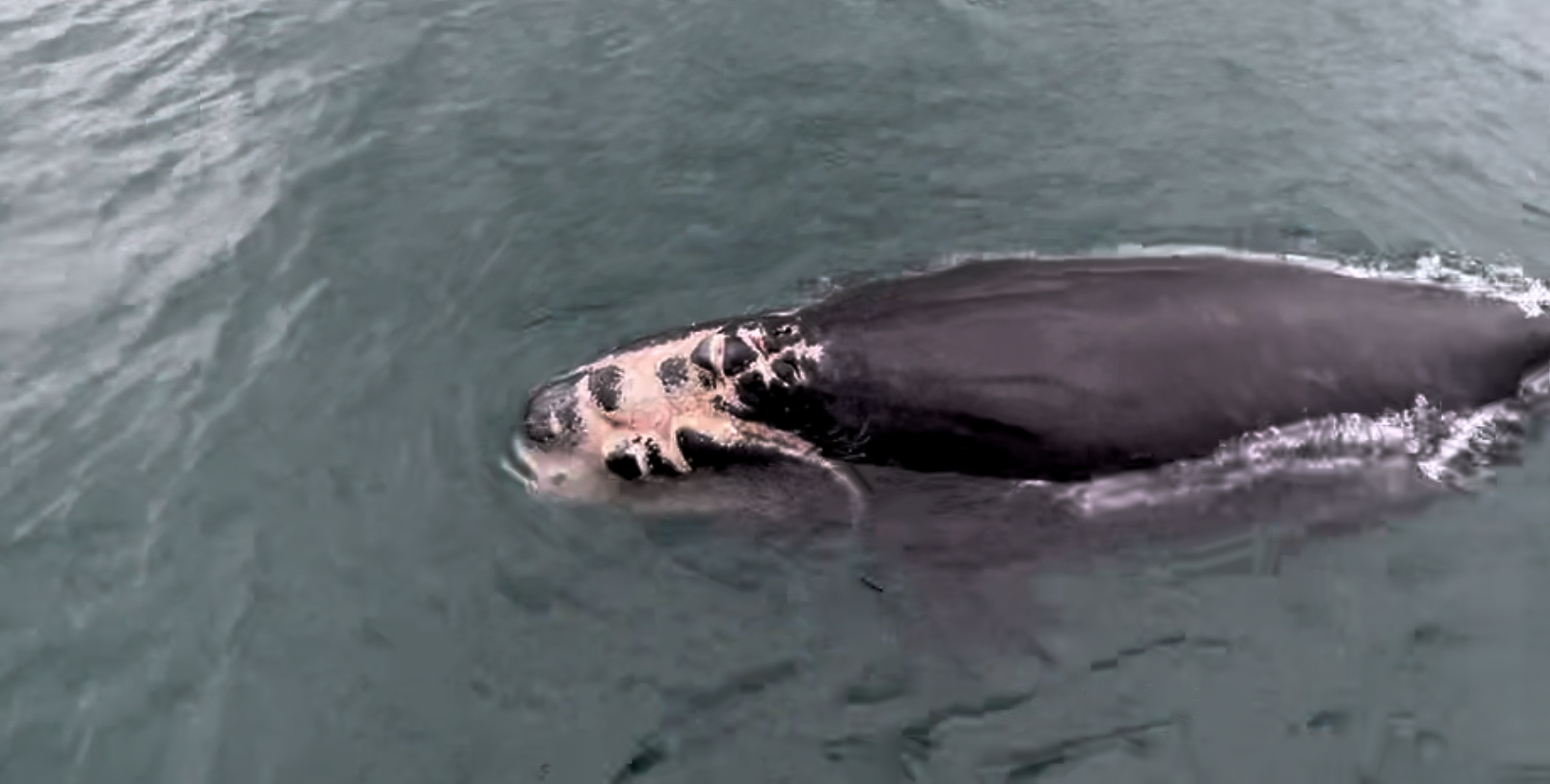
BOSTON, MASS. (March 6, 2024) – The news that a young North Atlantic right whale calf has died from a vessel strike, first detected two months ago, is adding heightened urgency to the need for federal actions to further restrict vessel speeds.
The eighth calf of 38-year-old right whale mother “Juno” (Catalog #1612) washed up dead on the Cumberland Island National Seashore in Georgia on March 3. The calf was the first of 19 known right whales born this season. Its death represents the second vessel strike death of a right whale documented in 2024, both of which occurred in the southeast U.S.
To better protect North Atlantic right whales, the National Oceanic and Atmospheric Administration (NOAA) has proposed modifications to the existing vessel speed rule that are now under interagency regulatory review. Proposed changes include both an expansion in time and space of seasonal speed zones; extending restrictions to include most vessels measuring 35 to 65 feet in length; and implementation of mandatory, instead of voluntary, speed restrictions in dynamic speed zones, which are established when and where right whales are observed and are likely to remain. The proposed rule was published more than 18 months ago but has not yet been finalized. The delay has put this vulnerable species at continued risk.
On January 3, images captured of the newborn calf showed severe propeller wounds to its head, mouth, and lip. At the time, NOAA said the newborn whale would likely die from its injuries. Preliminary estimates by NOAA determined that the vessel that struck the whale was likely between 35 and 57 feet in length. It is not known how fast the vessel was traveling. However, one of the changes proposed to the vessel speed rule would require vessels of this size to adhere to the speed restrictions.
“Without question, it is time for the federal government to take immediate and urgent action to implement stronger measures to protect this species from vessel strikes,” said Dr. Jessica Redfern, Associate Vice President of Ocean Conservation Science in the Anderson Cabot Center for Ocean Life at the New England Aquarium. “With less than 360 North Atlantic right whales left in the world, we do not have time to wait.”
This is the second young right whale found dead off the coast of Georgia from a vessel strike in the last few weeks—and the third documented right whale death in two months. On February 16, NOAA announced that a one-year-old female yearling found off Savannah, Georgia died of blunt force trauma, as evidenced by skull fractures consistent with a vessel strike. On January 28, a three-year-old female right whale entangled in fishing gear washed ashore dead on Martha’s Vineyard.
Vessel strikes and entanglement are the two leading causes of serious injury and mortality to critically endangered North Atlantic right whales. The New England Aquarium urges immediate, science-based action to reduce those threats.
“Scientific research shows NOAA’s revisions to the vessel speed rule will help protect right whales from vessel strikes. Finalizing this rule is urgently needed to help prevent the extinction of this species,” said Dr. Redfern.
MEDIA CONTACT: Pam Bechtold Snyder, psnyder@neaq.org; 617-686-5068
